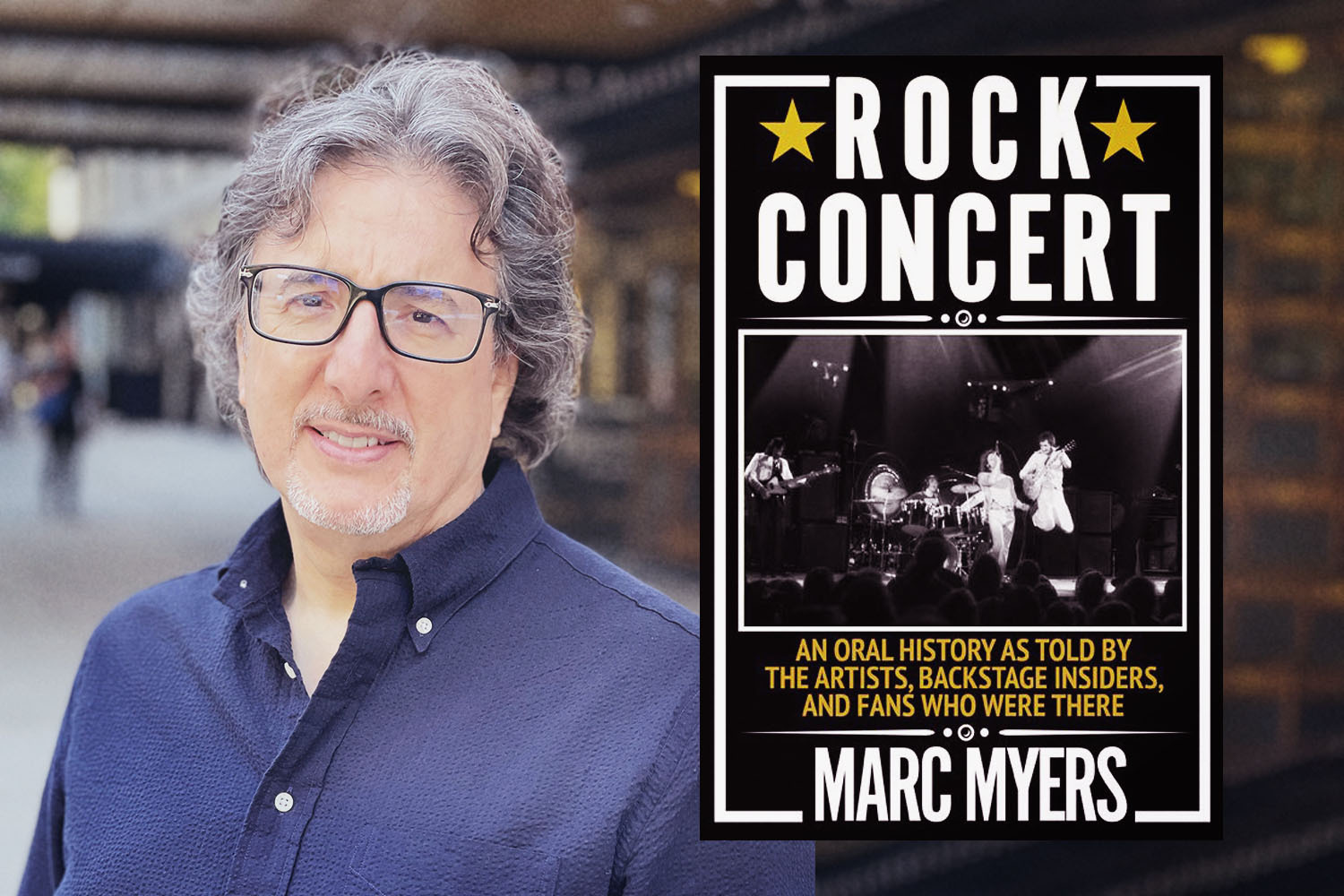For most European musicians who have reached a certain level of fame and critical acclaim — like say, for example, a 20-year career that includes not one but two of the most essential albums of the early-aughts garage rock revival — a trip across the pond to tour the United States and promote a new record would be a given. Pete Doherty, however, does not have that luxury.
The co-founder of The Libertines (who goes by the more formal-sounding “Peter Doherty” professionally these days) has a long rap sheet of drug-related charges from the nearly two decades he’s spent battling addictions to heroin, ketamine and crack cocaine that has prevented him from setting foot on American soil. (In 2010, he was detained for 10 hours at New York’s JFK Airport and denied entry into the country. He has not been back since.) Now, remarkably, he’s been clean since December 2019 — the longest he’s been off heroin in 20 years, he estimates. During the early days of the pandemic, he teamed up with French composer Frédéric Lo to write and record a collaborative album, The Fantasy Life of Poetry & Crime (out today), much of which was inspired by his new drug-free lifestyle. And he’s been clean long enough now that he’s begun to allow himself to imagine eventually touring behind the new record in the States.
“Because of my checkered past, I haven’t been able to get a visa,” Doherty tells InsideHook via video chat from his home in France. “But now I’ve been clean a few years, I’m really going to use that and try and convince them that I can be trusted to roam the land of the free without going off my nut. Yeah, I’m really excited about that. That’s my big dream, my next big ambition. It’d be great, man. I’d love to go.”
Hearing him talk about The Fantasy Life of Poetry & Crime, it’s hard not to root for him. His enthusiasm for the project is infectious, and that impish charm of his that’s been on display in interviews ever since he told an unsuspecting TV reporter in 1997, “I subscribe to the Umberto Eco view that Noel Gallagher’s a poet and Liam’s a town crier” while standing in line to buy an Oasis album as a teen hasn’t left him. If you ask him about this new album, he’ll occasionally interrupt himself to sing snippets of the new songs or turn his laptop’s camera around to show off the kitchen table where he and Lo hammered out a particular arrangement. When discussing how quickly the tracks came together, he’ll work in a reference to the name of the publication you’re writing for just to see if you’re paying attention. (“It was like, bam! An outside hook,” he says, a smile creeping across his face. “There was another one, bang! An inside hook. Another one, bam! An uppercut.” Eventually, he runs out of punches. “See the reference there to InsideHook?”)
Lo is equally effusive about the collaboration. “It was something I really loved,” he says of working with Doherty. “He tells great wisdom. Listening to his voice and watching him writing his beautiful poetry on my piece of music was really something incredible.” The pair holed up in Étretat, Normandy during lockdown, with Lo writing the music and Doherty handling the lyrics, pulling inspiration from the serene locale where the novelist Maurice Leblanc wrote his Arsène Lupin mysteries. Sonically, The Fantasy Life of Poetry & Crime is very indebted to the nation that birthed it, thanks largely to Lo’s lovely melodies. But lyrically, it’s all classic Doherty, confronting his demons and dancing between cynicism and hope with witticisms like, “The best-laid plans can oft go to fuckery/Run-down B&Bs can turn to luxury.”
He pays tribute to friends who have since passed on — like on “Abe Wassenstein,” an ode to his pal Alan Wass, who died of a heroin overdose in 2015 at age 33 — and his own struggles with addiction are never far from the surface, especially on tracks like “The Monster” or “You Can’t Keep It From Me Forever.” “I know every trick in the book,” Doherty warns on the latter, freshly clean but terrified that another relapse and return to his old life is lurking around the corner.
“At that point, I was three months clean of heroin and still white-knuckling and wondering if I was going to be able to do it,” he explains. While the pandemic was, of course, mentally taxing for all of us, it was an especially challenging time for those with substance abuse problems. When the lockdown was first announced, Doherty recalls, “My first thought was, ‘Oh my god, if they’re closing down the borders, how are the drugs going to get around?’ I don’t know why, but I was obsessed with this. And so I was calling people in London just to find out how things were. And it really hit people hard. People were trying to stock up and get as much as they can, and then when they were going out to score — because you’re not going to stay at home if you’re clucking, if you’re sick — it was just so obvious to the rest of the world what they were doing, because they were the only people on the streets. Do you know what I mean? Early the morning in Hackney, it’s normally quite busy, but all of a sudden they’re going to meet someone up an alley and they’re the only people. So it was really strange.”
Many, many of those people did not make it through. (According to one recent study, overdose-related deaths here in the United States increased by as much as 60 percent during the pandemic.) Doherty did, somehow.
“I managed to hold on really for dear life, and three months became six months, became a year,” he says. “And now somehow, two and a half years later, I’m still clean. But there were times when the obsession hadn’t lifted as much as it has. And I was really thinking, ‘It’s just a matter of time, really.’ That’s why I wrote ‘You Can’t Keep It From Me Forever.’ I think it was actually when we were recording the vocals for it, I was really struggling. Because in 20 years, I hadn’t recorded without drugs before. When I thought about it, I thought, ‘This is the first time really I’ve written and recorded a record without crack and heroin.’ Yeah, so I really felt it. But I feel stronger.”

There are, no doubt, many reasons it’s a miracle that Doherty is still alive, but in retrospect the most glaring is how cruel we all were to him. Looking back on the ’00s when he was a tabloid staple, it seems downright impossible that the constant harassment by the paparazzi and the mockery and shaming of him by the media (especially in his native UK) didn’t send him over the edge. Addiction is a disease, and those who suffer from it need help, not a camera shoved in their face. In recent years, there’s been a bit of a cultural shift, and we’ve seen many other celebrities from that era who similarly publicly battled with substance abuse and/or mental illness while the world gawked at them — Britney Spears, for example, or the late Amy Winehouse, Doherty’s close friend — receive critical reappraisals. But when he’s asked whether he thinks he’s deserving of the same grace, Doherty pauses.
“I don’t know if I presume to call for my own reevaluation,” he says, carefully. “I think there were people who always just liked me because of the music and just really ignored all the other stuff. But it’s a strange thing to think about, really, because it’s like recalling traumatic events. Confrontations with the tabloids is… Unless you’ve got power within the system you can’t really win, that’s what I found. You can’t really win against them. It’s just like being mugged up a dark alley, except it happens night after night, after night, after night. So it’s just like recalling loads of nasty, violent things… It was just a really strange, nasty, nasty experience.”
“Yeah, actually, I’d like to think in my sweet innocent heart that there might be a reevaluation, but I don’t know,” he adds wryly. “I think maybe too much damage is done, really. Maybe — what’s the expression? What’s the expression in America, when you talk about a corporate image or a product? The brand. I think the brand name, the Pete Doherty brand is too tainted by their abuses. Maybe if I change my name, maybe stick an O in there, change to O’Doherty or Flynn O’Doherty.” He grins. “That could confuse ’em.”
Of course, the coming months will be big ones for “the Pete Doherty brand.” In addition to the new album and a run of European tour dates with Lo, he’s slated to reunite with his fellow Libertines this summer for a series of UK shows celebrating the 20th anniversary of their debut album Up The Bracket. There’s even some new Libertines material in the works; Doherty lights up when talking about it. (“There’s definitely two or three new songs that it would be remiss not to pursue and record at some point,” he insists. “Definitely, yeah. There’s one called ‘Mustang’ and one called ‘Born Under A Bad Sign.’ Yeah.”)
But for now, there’s The Fantasy Life of Poetry & Crime, which ends on an arresting melancholy note with “Far From the Madding Crowd,” a pandemic-inspired track about all the music venues being closed during lockdown that hits on that sense of longing before eventually fading out.
“It’s like when you were cool in a club, there was good music playing, but you have to go back home,” Lo explains. “And then you go outside, you hear less and less well the music, and then you are alone on the streets. And the night is beautiful — you are in New York City, you are in Paris, you are in London — but you have paradox of feeling because you are really happy, but you are all alone at night in the street. Do you know what I mean? I have this feeling for that ending.”
In other words, those dark, empty streets can be lonely, but they can also be incredibly peaceful. And hey, the Libertines once warned us about trying to look back into the sun. Once it’s set and you’re out there, all you can do is keep moving forward until you find your way home.
And so that’s what Doherty does, taking it one day at a time and sharing his songs with whoever will listen.
“I’d like these songs just to be like new friends, old friends, a friend that you meet who you fall in love with and you know they’re going to be your friend forever,” he says. “That’s a lot to ask of a song. It’s a lot of pressure on the song, but I like to think these songs can make friends all over the world.”
Maybe, finally, he can too.
This article was featured in the InsideHook newsletter. Sign up now.





















